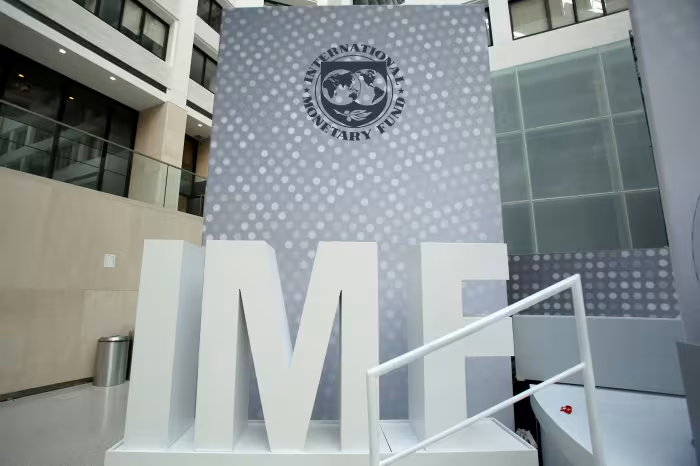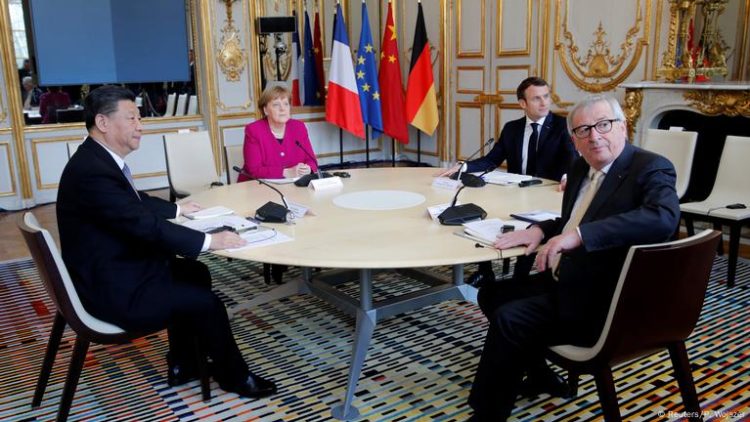Introduction
Europe, home to some of the world’s largest and most economically significant countries, plays a pivotal role in global financial markets. As the Eurozone remains a central player in the global economic landscape, its financial situation has far-reaching implications for global capital flows. These implications can range from direct effects on investment strategies to indirect impacts via policy changes, geopolitical tensions, and shifting economic fundamentals.
The current European financial situation is shaped by several interrelated factors, including economic growth stagnation, inflationary pressures, shifting monetary policies, and the evolving energy crisis driven by the war in Ukraine. Additionally, the region is navigating the impacts of the COVID-19 pandemic recovery and growing financial uncertainty that is reverberating across international markets. In this article, we will explore how these dynamics influence global capital flows, including foreign direct investment (FDI), cross-border financial investments, and capital market activities.
Section 1: The Economic Landscape in Europe and Its Global Impact
Europe’s financial situation is influenced by various economic and political factors that affect both regional and global markets. These factors include inflationary trends, fiscal policies, the energy crisis, and the financial health of key European economies like Germany, France, and the United Kingdom.
1.1 Economic Stagnation and Growth Uncertainty
The European economy has faced significant challenges over the past few years, from Brexit-related uncertainties to the ongoing effects of the COVID-19 pandemic. More recently, the region has been grappling with low growth rates and inflationary pressures. In particular, the Eurozone has experienced sluggish economic recovery, with many countries struggling to return to pre-pandemic growth levels.
- Risk of Stagnation: The economic stagnation in Europe, exacerbated by higher energy costs and supply chain disruptions, has led to reduced consumer demand and weaker industrial production. For global investors, this represents a major concern. Economic stagnation in Europe can result in reduced corporate earnings and lower returns on investment, especially in sectors such as manufacturing, retail, and finance.
- Global Impact: Weak economic performance in Europe can reduce the region’s demand for imports, which affects global export-dependent economies, particularly those in Asia and Latin America. Moreover, it can lead to lower global investor confidence, as Europe remains one of the largest financial markets in the world. This could prompt capital outflows from Europe to other emerging markets with higher growth potential.
1.2 Inflation and Central Bank Policies
One of the most significant economic issues currently facing Europe is inflation. Many countries within the Eurozone are experiencing price increases across a range of goods, particularly energy, food, and raw materials. To tackle inflation, the European Central Bank (ECB) has been tightening its monetary policy, including raising interest rates. However, this tightening cycle comes with its own set of challenges.
- Monetary Tightening and Capital Flow: Rising interest rates in Europe could make it more expensive for businesses and individuals to borrow money, which might dampen investment activities and consumption. Additionally, tighter monetary policy can also have an effect on the value of the euro, making it less attractive for investors who prefer high-yielding assets in other regions, such as the U.S. or emerging markets.
- Global Impact: As the ECB raises interest rates, capital may flow out of Europe to other regions where monetary policies remain more accommodative or where higher yields are available. This could strengthen the U.S. dollar relative to the euro, further discouraging European investment from foreign investors who seek higher returns in a more stable, growth-oriented environment. Global capital may be drawn to markets where interest rates are more favorable, such as the U.S. or Asia.
1.3 The Energy Crisis and Geopolitical Tensions
The war in Ukraine has had a profound impact on Europe’s financial situation, particularly in terms of energy prices. The conflict has significantly disrupted global energy markets, leading to sky-high prices for oil and natural gas, which has caused inflationary pressures across the region. The European Union has been working to reduce its dependence on Russian energy exports, but the transition to alternative energy sources presents challenges.
- Energy Costs and Capital Investment: The high energy costs in Europe are straining both households and businesses, contributing to declining industrial production and weaker growth. For investors, the increased cost of doing business in Europe, coupled with geopolitical instability, is likely to result in lower investment in energy-intensive sectors such as manufacturing and transportation.
- Global Impact: The rising energy prices in Europe and the shifting energy landscape are influencing global capital flows in multiple ways. For example, investors may seek opportunities in alternative energy markets or turn to regions with abundant energy resources, such as the Middle East and the U.S., where energy production remains stable and relatively affordable. Additionally, countries with strong energy efficiency and renewable energy sectors may attract more capital as the world looks to reduce reliance on fossil fuels.
1.4 The United Kingdom Post-Brexit and Its Global Implications
The United Kingdom’s departure from the European Union (Brexit) has had a lasting impact on Europe’s financial landscape. Although the UK has regained some independence in policy making, the effects of Brexit continue to be felt, especially in terms of financial services, trade, and capital flows. The UK is still a major global financial center, and its relationship with the EU continues to evolve.
- Financial Services and Investment: Brexit has created barriers to the free movement of capital and people between the UK and the EU. This has led to some financial services being relocated from London to cities within the EU, including Frankfurt, Paris, and Dublin. While London remains a global financial hub, the redistribution of financial activity across Europe can lead to changes in capital flows, particularly in the financial sector.
- Global Impact: Brexit-related disruptions have made the UK less attractive for some types of international investments, particularly those involving EU markets. At the same time, some international investors may favor the UK due to its regulatory flexibility outside the EU framework. These shifts in capital flows can affect the wider global investment environment, as multinational corporations adjust their strategies in light of these changes.

Section 2: How European Financial Conditions Influence Global Capital Flows
The financial environment in Europe is closely tied to global capital flows due to the region’s interconnectedness with the rest of the world. Here are some of the key ways European financial conditions can influence global capital movement:
2.1 Foreign Direct Investment (FDI)
Europe has traditionally been a major destination for foreign direct investment (FDI), driven by its large consumer market, advanced infrastructure, and stable regulatory environment. However, the economic challenges and the uncertainties associated with the region’s financial situation have made Europe less attractive to foreign investors in recent years.
- Capital Outflows: As Europe grapples with economic stagnation and rising inflation, foreign investors may seek higher returns in other regions, such as Asia or the Americas, where economic growth prospects are more promising. This could lead to a decline in FDI into the region, particularly in sectors vulnerable to economic slowdown or rising costs.
- Reallocation to Emerging Markets: Given Europe’s current financial difficulties, investors might shift their capital allocation to emerging markets in Asia or Latin America, which could offer better growth opportunities and lower costs. For instance, countries like India and Southeast Asia could see an increase in FDI, driven by their expanding consumer base and emerging middle class.
2.2 Global Portfolio Investment
Europe’s financial instability and economic uncertainty also influence global portfolio investment decisions. Global investors diversify their portfolios across a variety of regions and asset classes, and the relative attractiveness of European assets can significantly influence these decisions.
- Capital Flight: As European markets face low growth prospects, rising inflation, and tighter monetary policies, investors may seek more attractive opportunities in other developed markets, such as the United States, or emerging markets that offer higher growth potential. This can lead to capital flight from Europe, causing a depreciation of the euro and a shift in global portfolio investments.
- Impact on Bond Markets: Rising interest rates in Europe can make European bonds more attractive to certain investors, but they also signal potentially higher borrowing costs for companies and governments. This can make corporate and sovereign debt less appealing to global investors, especially if economic growth continues to weaken.
2.3 Global Trade and Investment Flows
As Europe struggles with economic challenges, the impact on global trade flows can be significant. Many European companies are major players in global supply chains, and disruptions in their production or export capabilities can affect international markets.
- Supply Chain Disruptions: The war in Ukraine and the ongoing energy crisis have disrupted European manufacturing and supply chains, which in turn has affected global production. This has led to a reshuffling of global investment patterns as companies and investors seek stability in other regions. For example, companies may invest in alternative supply chains in Asia or North America to mitigate risks.
- Trade Agreements and Global Investment: Europe’s evolving trade relationships post-Brexit and its strategic partnerships with countries like the U.S. and China will continue to influence capital flows. New trade agreements or the breakdown of existing deals can significantly alter the investment climate.
Section 3: Conclusion
The current financial situation in Europe is having profound effects on global capital flows. Economic stagnation, rising inflation, tightening monetary policy, and geopolitical tensions are creating an environment of uncertainty that is driving investors to reassess their portfolios. While Europe remains an important global economic player, the region’s challenges are prompting capital to flow toward more attractive opportunities in emerging markets and other developed regions.
Investors need to closely monitor the financial situation in Europe, as changes in the region’s economic fundamentals, energy landscape, and trade dynamics will continue to influence global financial markets. At the same time, Europe’s evolving financial situation presents opportunities for investors who are prepared to navigate the risks and seize emerging investment opportunities in a changing global environment.

































